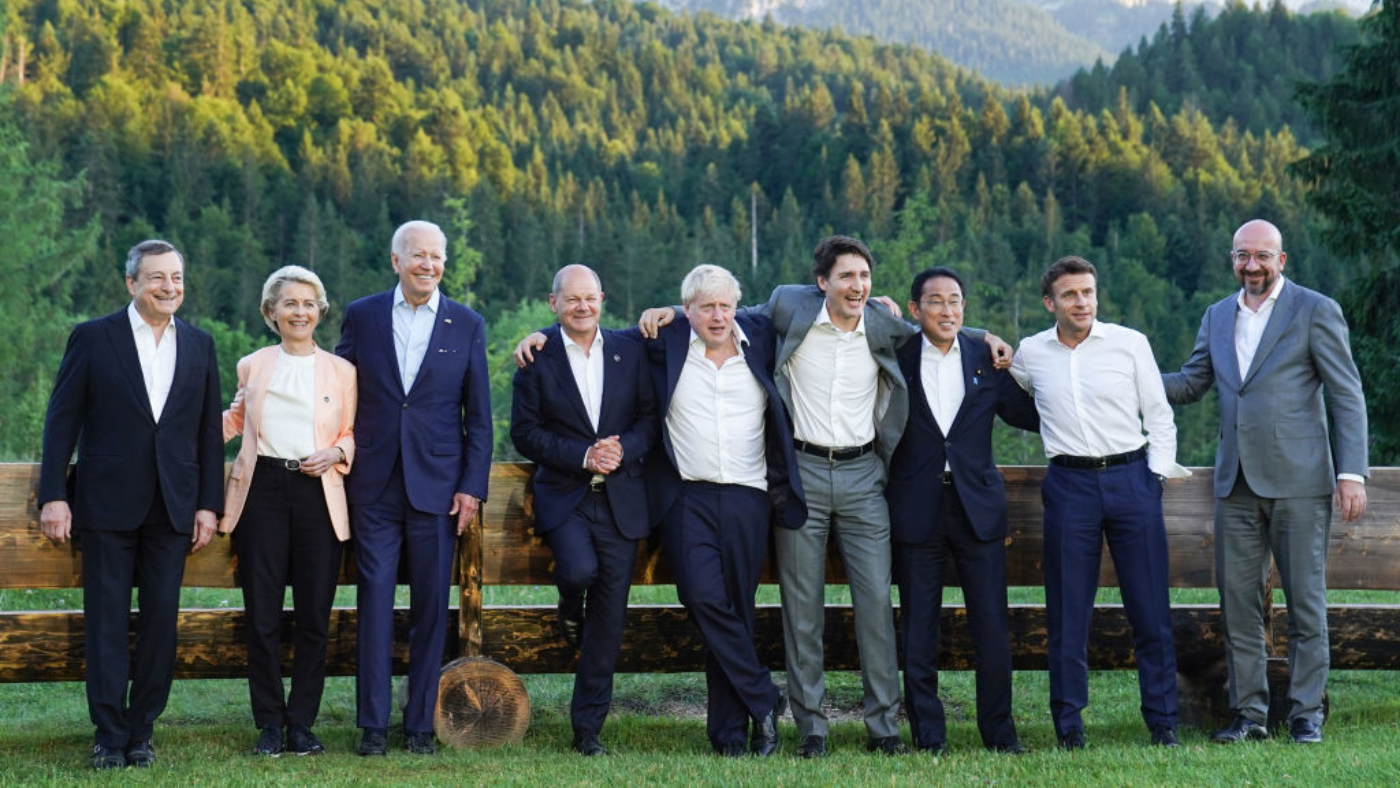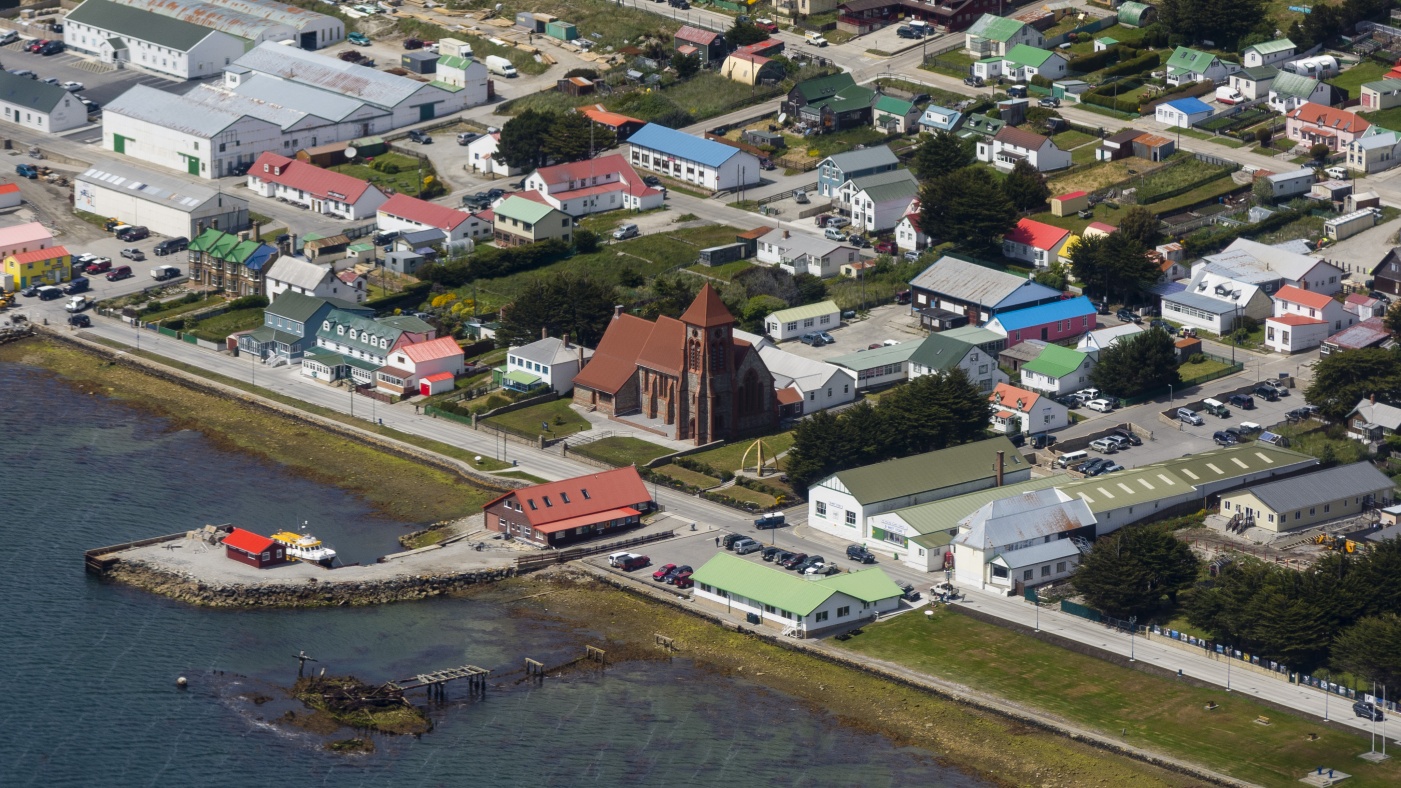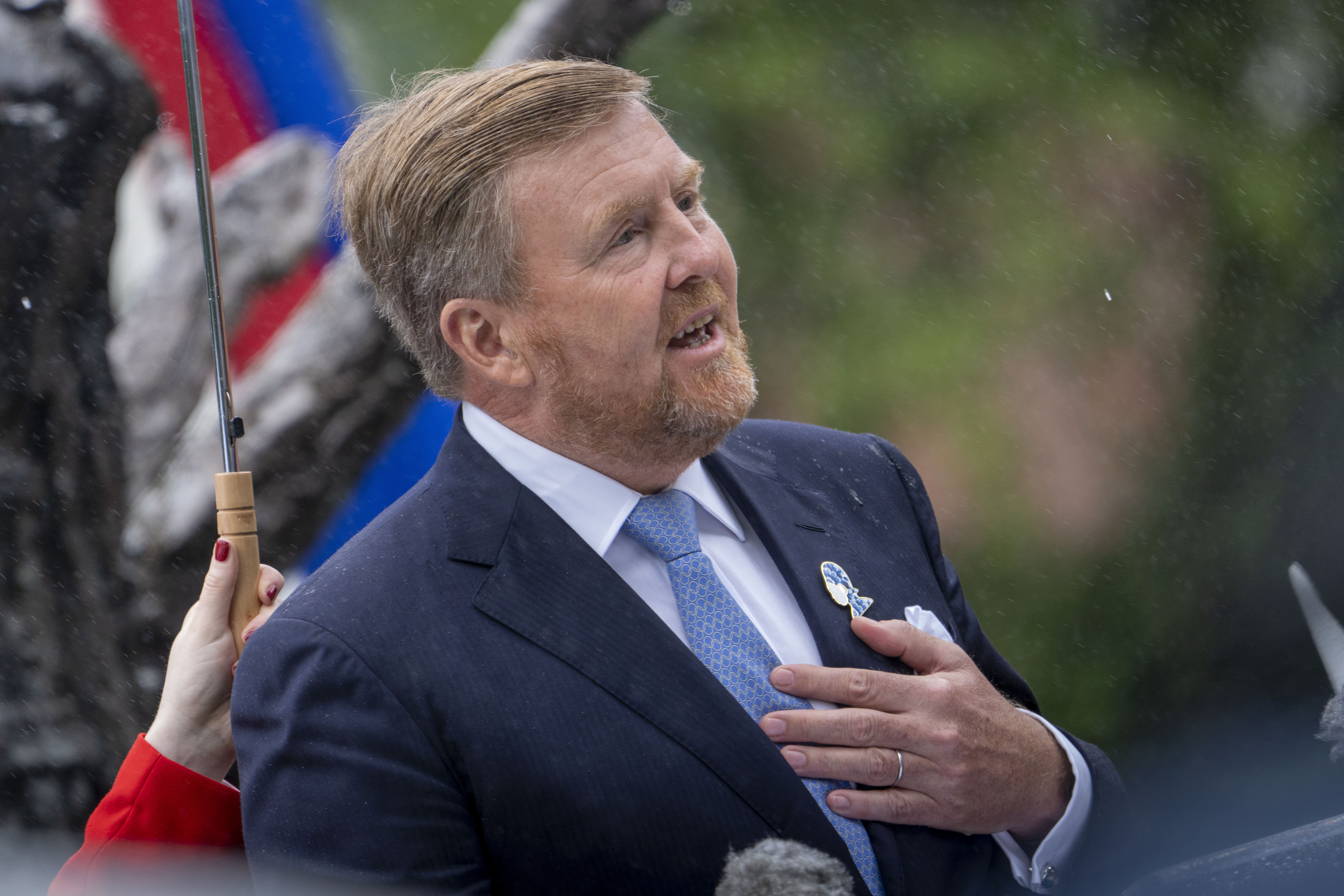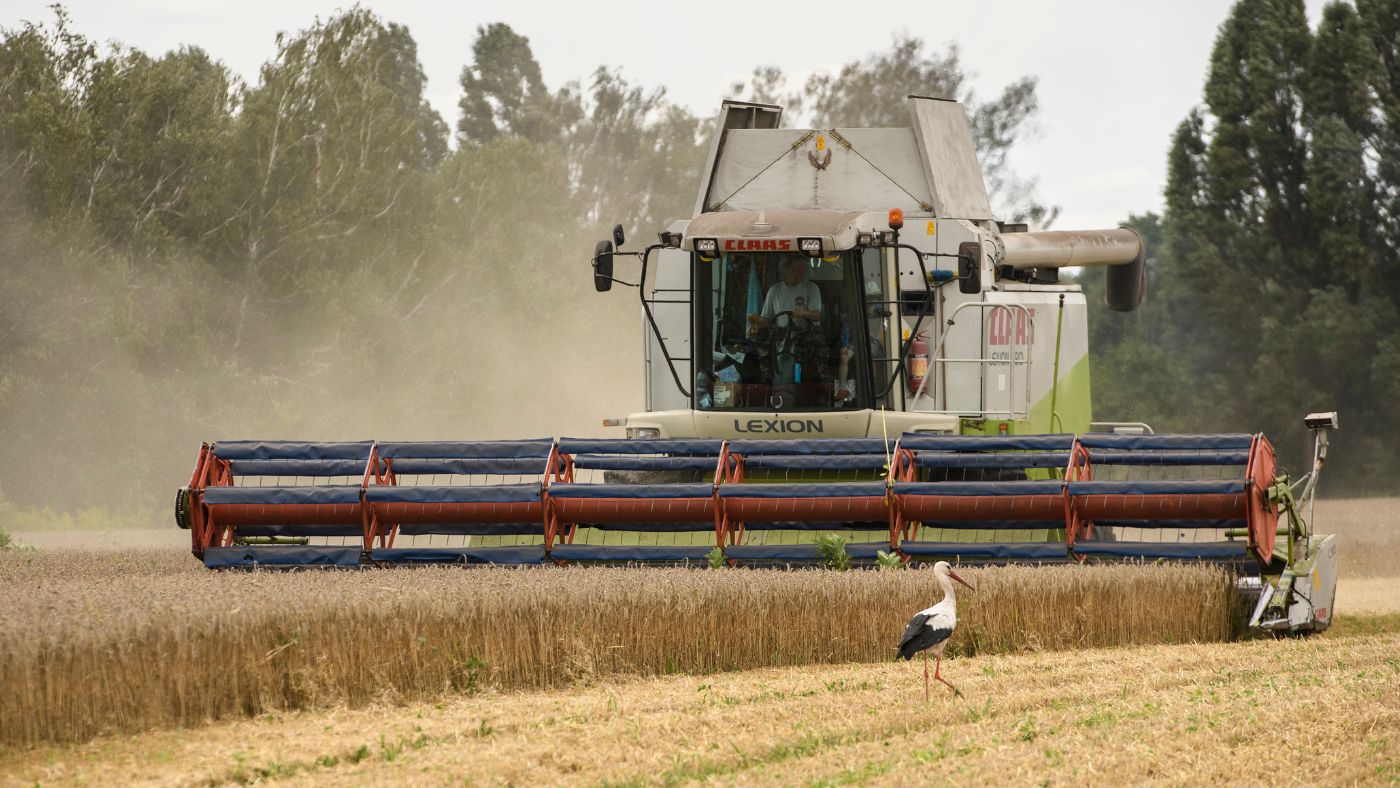‘Boris Johnson measures success in biceps rather than brain power’
Your digest of analysis from the British and international press

- 1. Scrapping the NI protocol is just the start. Johnson’s trade wars are Trumpism in action
- 2. Cutting literature degrees is cultural vandalism
- 3. Questioning Nato relevance is misguided and dangerous
- 4. Our Auntie BBC loves all 150 genders… but not the over-60s
- 5. Keir Starmer’s stance on the strikes is a betrayal of the people who need Labour
A free daily email with the biggest news stories of the day – and the best features from TheWeek.com
You are now subscribed
Your newsletter sign-up was successful
1. Scrapping the NI protocol is just the start. Johnson’s trade wars are Trumpism in action
Simon Jenkins in The Guardian
on populist policies
Britain’s foreign policy is “at the mercy of Boris Johnson’s reckless quest for survival”, says Simon Jenkins in The Guardian. Every trip abroad “is treated as a photo opportunity” as he promotes “the most intense economic disruption” in Europe’s peacetime history, Jenkins says. An “absurd ‘bromance’ is even staged” with Emmanuel Macron; “never was machismo so synthetic”. Yesterday’s vote on a bill that would permit the scrapping of the Northern Ireland Protocol “was a classic”, being “motivated by a desire to appease the province’s fast-disintegrating Unionist majority”. Johnson’s suggestions for “a ‘soft’ border with Ireland are actually quite sensible. But Downing Street’s three years of anti-EU rhetoric have exhausted any wish in Brussels to be co-operative.” The prime minister is “set on” a trade policy that is “not Toryism but Trumpism”. As a “populist” leader, Johnson “measures success in biceps rather than brain power”. This, says Jenkins, “is not democratic government”.
The Week
Escape your echo chamber. Get the facts behind the news, plus analysis from multiple perspectives.

Sign up for The Week's Free Newsletters
From our morning news briefing to a weekly Good News Newsletter, get the best of The Week delivered directly to your inbox.
From our morning news briefing to a weekly Good News Newsletter, get the best of The Week delivered directly to your inbox.
2. Cutting literature degrees is cultural vandalism
Melanie Phillips in The Times
on concerns about courses
Sheffield Hallam University has suspended its English literature course due to graduates’ difficulties in securing high-earning jobs. The news “follows a threat by the Office for Students” that universities face penalties for courses with low rates of graduate employment, writes Melanie Phillips in The Times. When this writer studied English, she assumed it would equip her “for nothing practical and everything that mattered”. Studying literature “was in essence a moral project”. Vocational skills are “vitally important”, says Phillips. “Britain has always shamefully neglected them, largely through its identification of social status with a university degree.” Phillips says it was “snobbishness, masquerading as a drive to improve social mobility” that led to polytechnics becoming universities, with “the doubly unfortunate result” of reducing high-value vocational course numbers and lowering the standards of degrees to accommodate many students “unsuited to academic study”. Sheffield Hallam’s decision may be “cultural vandalism”, she concludes, but universities “have already long vandalised themselves”.
A free daily email with the biggest news stories of the day – and the best features from TheWeek.com
3. Questioning Nato relevance is misguided and dangerous
Tom Røseth and John Weaver at The Hill
on international allies
Nato leaders are gathering in Madrid this week for the alliance’s annual summit. “Despite its longevity and success – or perhaps because of it – many people question NATO’s relevance today,” write associate professors Tom Røseth and John Weaver at The Hill. Some have even called for the US to withdraw from the alliance. “These attitudes are misguided and dangerous,” the writers say. Nato is “not only still relevant” to its members, “it’s necessary”. It has been “a key pillar in the fight” against Islamic State, and the alliance “came to the aid” of America following 9/11. Today, Nato’s contributions of weapons and training to Ukrainian forces “have been a testament” to its “resolve”. Nato’s allies “would be better served by using the summit as a means to strengthen their purpose”, particularly given the “shifting” geopolitical landscape. And allowing Finland and Sweden membership would “send a strong message to other would-be aggressors, that NATO is alive and well”.
4. Our Auntie BBC loves all 150 genders… but not the over-60s
Clemmie Moodie in The Sun
on audience demographics
The BBC is “the most inclusive state broadcaster in the world”, says Clemmie Moodie in The Sun. China’s citizens “would kill for such diversity”. The Beeb recently hired non-binary inclusion consultants “to teach staff there are at least 150 different genders”. Staff “are being urged to declare their pronouns on emails with a list which has expanded to include newly invented ones such as ‘xe, xem, xyrs.’ Really,” says Moodie. “So far, so ‘inclusive’… unless, that is, you’re edging towards a bus pass”, in which case “watch ya back, you senile, lumbering ol’ lump of lard!” The BBC “goes all-out to be all-things to all-people” but “the one demographic it appears to despise is the very one it should be nurturing”. DJ Tony Blackburn has “hinted at ageism” after his Radio 2 show was moved from a Friday to a Sunday, and learning that “some employers were not considering over-55s for jobs”. Moodie says that “woke Aunty needs to start rewarding” audiences’ loyalty – “quickly”.
5. Keir Starmer’s stance on the strikes is a betrayal of the people who need Labour
Simon Fletcher in The New Statesman
on political positioning
“Keir Starmer’s handling of the rail strikes has taken a wrong turn,” writes Simon Fletcher, a former adviser to the Labour leader, in The New Statesman. A “monumental battle is underway” over incomes and “plummeting” living standards. Labour “cannot afford to stand on the sidelines”. When rail strikes were announced, the party’s transport team started out with a “creditable” position – that the Transport Secretary Grant Shapps should “take responsibility for the dispute”. That “shifted”. Starmer said he was “against the strikes”, and instructed frontbenchers “to stay away from picket lines”. Political management, says Fletcher, “is not just ordering people about”. And “a public bunfight between the party, the unions, the left, the party’s membership” and Labour voters is “what the Conservatives want”. These “new and extreme” economic times “demand a new political approach”. Just as the government “is not neutral over the strikes, neither should Labour be”. The party “has a rare opportunity to forge a new consensus” and unite “everyone who needs an alternative”.
-
 How the FCC’s ‘equal time’ rule works
How the FCC’s ‘equal time’ rule worksIn the Spotlight The law is at the heart of the Colbert-CBS conflict
-
 What is the endgame in the DHS shutdown?
What is the endgame in the DHS shutdown?Today’s Big Question Democrats want to rein in ICE’s immigration crackdown
-
 ‘Poor time management isn’t just an inconvenience’
‘Poor time management isn’t just an inconvenience’Instant Opinion Opinion, comment and editorials of the day
-
 Roman-era Brits kept lap dogs
Roman-era Brits kept lap dogsfeature And other stories from the stranger side of life
-
 ‘Islas Malvinas’ and the new battle over the Falklands
‘Islas Malvinas’ and the new battle over the FalklandsTalking Point Argentina scores ‘major diplomatic win’ as EU refers to British territory by its disputed name
-
 Dutch king apologizes for country's role in slave trade
Dutch king apologizes for country's role in slave tradeSpeed Read
-
 Boris Johnson shocks UK by resigning from Parliament
Boris Johnson shocks UK by resigning from ParliamentSpeed Read
-
 Bees delay flight for three hours
Bees delay flight for three hoursfeature And other stories from the stranger side of life
-
 Ukrainian grain: rousing the fury of east Europe’s farmers
Ukrainian grain: rousing the fury of east Europe’s farmersfeature Three Eastern European countries have banned grain imports from the war-torn country
-
 Swedish mining company discovers Europe's largest rare earth element deposit
Swedish mining company discovers Europe's largest rare earth element depositSpeed Read
-
 10 things you need to know today: December 18, 2022
10 things you need to know today: December 18, 2022Daily Briefing North Korea fires pair of ballistic missiles that could potentially reach Japan, EU reaches deal on key climate change agenda, and more